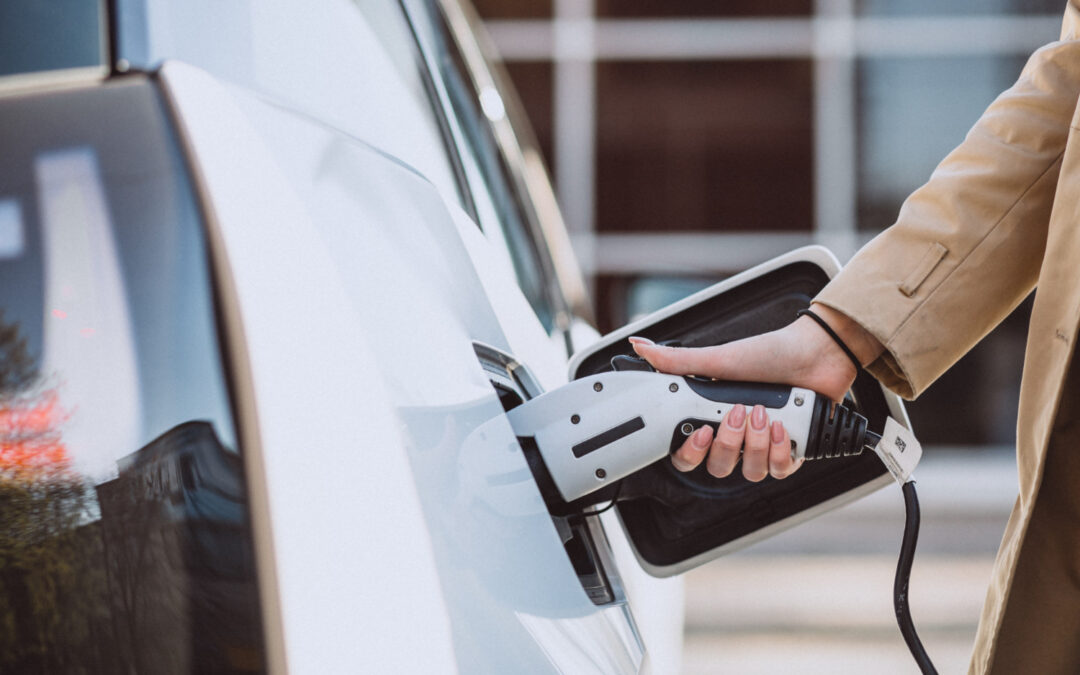Indonesia is taking bold steps toward decarbonizing its economy, with the transportation sector at the center of this transition. In line with global climate goals, the government recently issued Presidential Regulation No. 79/ 2023 (Perpres 79/2023), amending Presidential Regulation No. 55/2019 to accelerate the adoption of battery electric vehicles (BEVs). This regulatory update highlights the country’s commitment to reducing emissions and promoting sustainable mobility.
More specifically, Article 7 paragraph 3 point e of Perpres 79/2023 mandates technological innovation in the BEV industry to ensure environmental compliance and alignment with technical standards, reflecting Indonesia’s growing emphasis on green technology in transport.
Indonesia’s energy transition strategy hinges on reducing its dependence on fossil fuels by scaling up clean energy alternatives. In the transport sector, this translates to promoting the use of electric vehicles (EVs) powered by renewable energy sources. Former Minister of Transportation Budi Karya Sumadi emphasized that EVs play a strategic role in lowering carbon-based fuel consumption. Electrifying the road transport system, one of the largest greenhouse gas emitters, marks a significant milestone in the country’s broader decarbonization roadmap.
How Renewable Energy is Transforming Indonesia’s Transport Sector
Transportation is essential to economic development but remains a key contributor to environmental degradation due to its reliance on fossil fuels. A sustainable transition requires integrating New and Renewable Energy (Energi Baru Terbarukan/EBT) into transport systems.
Under Law No. 30 /2007 on Energy, renewable energy includes sources such as geothermal, wind, solar, hydro, and bioenergy. In the context of transportation, this refers to powering vehicles using electricity generated from such clean sources.
Eniya Listiani Dewi, a leading researcher at the National research and Innovation Agency (BRIN), was quoted by the Institute for Essential Services (IESR) as saying that integrating renewable energy into electric mobility is critical to reducing carbon emissions. Supporting this view, the Institute for Essential Services Reform (IESR) highlighted in its Deep Decarbonization of Indonesia’s Energy System report that the strategic potential of biofuels and hydrogen in the country’s transport decarbonization.
Government Regulations Driving EV Adoption in Indonesia
To support the growth of a green transport ecosystem, the Ministry of Transportation has enacted several key regulations:
- Minister of Transportation Regulation No. 86/2020 (Permenhub 86/2020), which amends Regulation No. 44/2020 on the physical type testing of electric motor vehicles, and
- Minister of Transportation Regulation No. 45/2020 (Permenhub 45/2020) on the use of certain vehicles with electric motor drives.
Under Permenhub 45/2020, electric vehicles are permitted to operate on specially designated lanes. These regulatory frameworks, reinforced by Perpres 79/2023, demonstrate the state’s policy alignment and readiness to embrace electrified public and private mobility.
Benefits and Barriers: The Impact of Renewable Energy in Transport
The shift to renewable energy in transportation delivers significant benefits, such as:
- Lower carbon emissions with EVs powered by renewable energy contribute significantly to climate mitigation.
- Energy Security as renewable energy reduces Indonesia’s reliance on imported fossil fuels.
- Promotion of the development of innovative and efficient, next-generation vehicle technologies.
- Sustainability as renewable energy use is in line with national and international environmental goals.
Nonetheless, this transition also presents several challenges:
- High initial Costs since EVs and charging infrastructure require substantial capital investment.
- Limited range since EVs offer shorter distances per charge compared to internal combustion vehicles.
- Infrastructure gaps due to the insufficient availability of public charging stations across many regions.
Also read: Renewable Energy: A Strategic Response to the Global Energy Crisis
Outlook: Toward a Sustainable and Resilient Transport Future
Indonesia’s transition to renewable energy in the transport sector represents a strategic and necessary response to the twin challenges of climate change and fossil fuel dependency. While technological, economic, and infrastructure hurdles remain, the government’s evolving legal and policy landscape signals a strong commitment to sustainable transport development.
Achieving this vision will require multi-stakeholder collaboration, including private sector innovation, government incentives, and public awareness campaigns. As global trends continue to shift toward clean mobility, Indonesia is positioning itself to become a regional leader in sustainable transportation..***
Regulations:
- Peraturan Presiden Nomor 79 Tahun 2023 tentang Perubahan atas Peraturan Presiden Nomor 55 Tahun 2019 tentang Percepatan Program Kendaraan Bermotor Listrik Berbasis Baterai (Battery Electric Vehicle) Untuk Transportasi Jalan (“Perpres 79/2023”).
- Peraturan Menteri Perhubungan Nomor 86 Tahun 2020 tentang Perubahan atas Peraturan Menteri Perhubungan Nomor 44 Tahun 2020 tentang Pengujian Tipe Fisik Kendaraan Bermotor dengan Motor Penggerak Menggunakan Motor Listrik (“Permenhub 86/2020”).
- Peraturan Menteri Perhubungan Nomor 45 Tahun 2020 tentang Kendaraan Tertentu dengan Menggunakan Penggerak Motor Listrik (“Permenhub 45/2020”).
- Undang-Undang Nomor 30 Tahun 2007 tentang Energi (“UU Energi”).
References:
- Transportasi jadi Fokus Program Transisi Penggunaan Energi Terbarukan. Departemen Perhubungan. (Diakses pada tanggal 08 Juli 2025 pukul 13.42 WIB).
- Transportasi sebagai Pendukung Sasaran Pembangunan Nasional. Departemen Perhubungan. (Diakses pada tanggal 08 Juli 2025 pukul 13.42 WIB).
- Energi Terbarukan di Transportasi. Atonergi. (Diakses pada tanggal 08 Juli 2025 pukul 14.43 WIB).
- Kendaraan Listrik menjadi Opsi Efektif Penyediaan Transportasi Ramah Lingkungan. IESR. (Diakses pada tanggal 08 Juli 2025 pukul 15.01 WIB).
- Sektor Transportasi Masuk Era Konvergensi, Butuh EBT Capai Kemandirian Energi. Energika. (Diakses pada tanggal 08 Juli 2025 pukul 15.20 WIB)
- Regulasi Pemerintah Menyambut Era Kendaraan Listrik. HukumOnline. (Diakses pada tanggal 08 Juli 2025 pukul 16.01 WIB).
